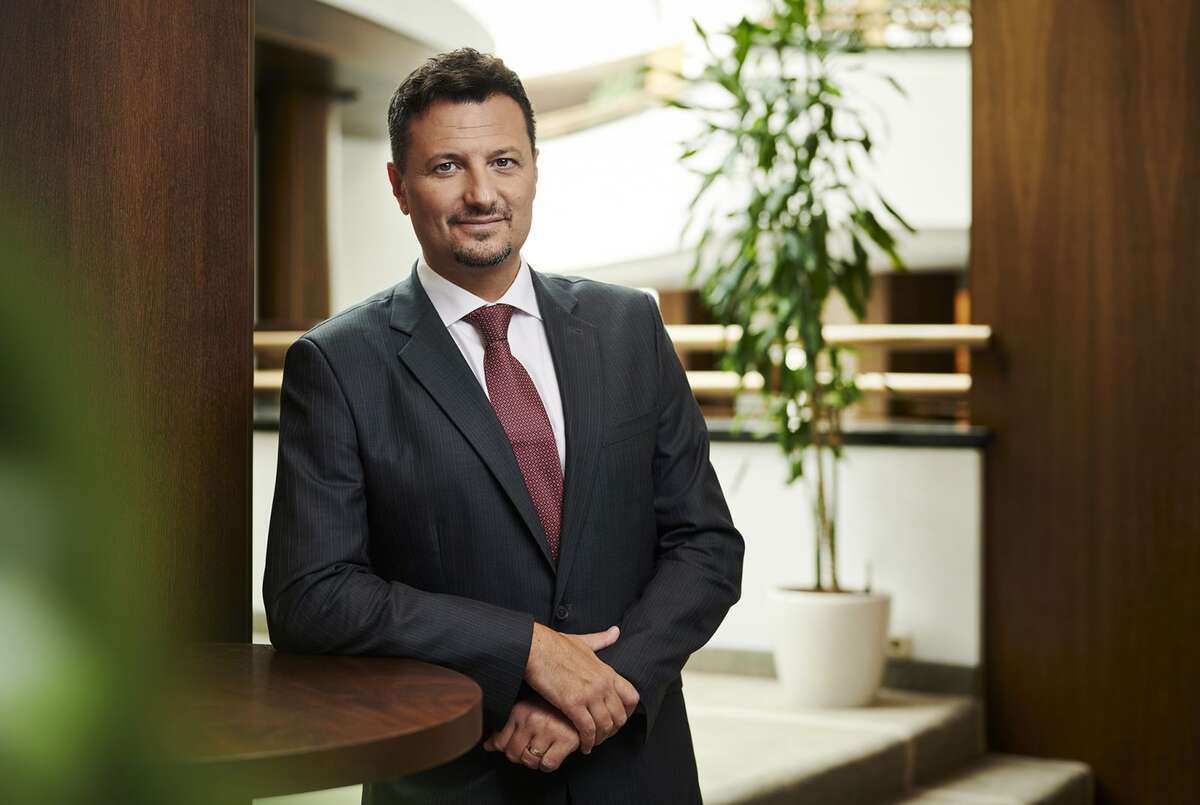While the Biden administration is concerned about approving the construction of new liquefied natural gas export terminals, the world is glad the United States is a stable supplier of that fuel.
That is the opinion of Benjamin Lakatos, founder, chairman and CEO of MET Group, a big, integrated European energy trader, electricity generator and green power developer.
Speaking by telephone from his headquarters in the canton of Zug, Switzerland, Lakatos said, “Thirty to 50 percent of the gas supply in the European Union is LNG, especially since the Ukrainian war started in February 2022.”
Lakatos told me, “As a European, I have a pragmatic approach: It is in our continent’s interest to see more LNG coming to Europe at an affordable price.”
In the past two years, “in the middle of the heavy turbulence, the U.S. had a stabilizing effect on the global gas prices,” he said.
That doesn’t mean gas won’t begin to be phased out, but Lakatos projected it will be an essential fuel in Europe for 20 to 25 years, especially for home heating, peak electricity demand, and as a transitional fuel in order to balance weather-dependent (intermittent) renewable power generation. He did note that gas consumption declined by 8 percent in 2023 compared to 2022, and 20 percent compared to 2021 in Europe.
MET Group has a 20-year heads of agreement with Commonwealth LNG, which is building a terminal in Louisiana and is due to start exporting in three years. In the past MET Group has bought U.S. LNG, but this would be the first long-term contract.
MET Group is one of the fastest-growing and most dynamic energy companies in Europe with offices in 14 countries and Singapore, activity in 30 global gas markets. Lakatos created the idea of MET Group in Hungary in 2007, and it still owns gas-fired electricity generation there.
When the company grew, and became more of an energy conglomerate, it moved to Switzerland in 2012.
Although deeply engaged in gas trading, which accounts for the majority of its annual revenue of over $44 billion (in 2022), the company has a green power subsidiary; it operates six solar plants in Hungary, one solar plant in Spain, and two wind farms in Bulgaria. Other diverse projects are under development in Italy, Germany, Romania, Poland and Switzerland. In Germany, it also operates gas storage facilities.
But it is as a gas a trader that MET Group is mostly known. The company has a staff of around 1,000 and although it buys LNG from the United States, it doesn’t have an onshore operation here — yet.
MET Group makes a point of seeking talent for its staff. With offices across Europe and abroad, diversity of backgrounds is the standard. Lakatos says proudly that more than 50 nationalities are represented in the company. He was born in Hungary and educated in Budapest and at the State University of New York.
Lakatos is an exuberant man who talks about energy with palpable enthusiasm. He is ecumenical in his enthusiasm for energy: All fuels have virtue.
While many in the energy industry have engineering backgrounds, his is in finance. This has enabled him to see and seize opportunities during a time of change and excitement in Europe’s energy markets in the 2000s. Today, MET Group is one of the largest privately held energy companies in Europe.
Lakatos told me, “I have three children: a daughter, a son and MET.” He is the majority stockholder with most of the rest of the equity held by some 90 managers in the company and 10 percent by Keppel, a publicly traded Singapore company.
Most of Lakatos’ thinking about the future is surprisingly in line with the general energy philosophy prevailing in the United States.
For example, he believes that gas is a transition fuel to a future green economy; in many countries, nuclear is an essential source of power in Europe’s future; the construction of LNG terminals in the European Union is complete and there is no need for further FIDs; and the cost of green hydrogen must come down substantially, if it is to have a significant future role.
The United States is now the world’s largest LNG exporter — a position it achieved in a few short years. Before the fracking boom turned around gas production, it was assumed that the country would become an importer and terminals, like Cove Point in Maryland’s Chesapeake Bay, were built to facilitate the import of gas. Originally a landing point for Algerian LNG, Cove Point was converted and enlarged to be an export terminal, and operates as such now.
When I asked Lakatos whether Europe would have its own fracking boom and upend the European market as it did the American, he said emphatically, “No.” The resource and support by the population isn’t there. The head of MET Group should know — he has grown a significant company on knowing about gas.












